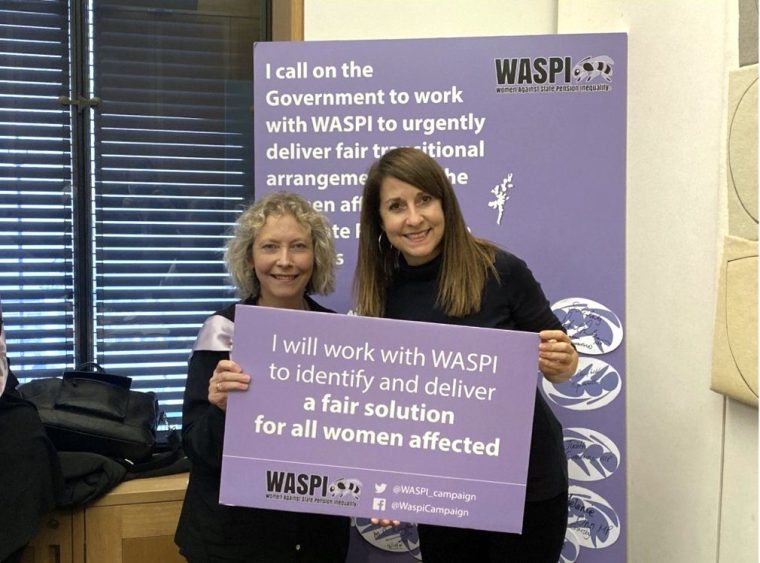Labour MPs have warned the Prime Minister they are ready to defy the Government over its decision not to compensate the millions of women affected by changes to the state pension age.
The SNP has suggested they could force a vote on the issue, with the party’s Westminster leader, Stephen Flynn, stating that “those Labour MPs who once pretended to back Waspi must now be faced with the voting lobbies”.
Ian Byrne, a former Labour MP who lost the party whip earlier this year for voting against the Government, also urged Sir Keir Starmer to hold a vote during PMQs on Wednesday.
These calls were welcomed by Brian Leishman, the Labour MP for Alloa and Grangemouth, who told The i Paper he’d be willing to lose the party whip to vote in support of the Women Against State Pension Inequality (Waspi) campaign.
“This is not about me. This is not about me or any sort of parliamentary career… This is about them, and actually restoring some justice to them,” he said.
“Let’s have a vote on this. I know exactly how I would vote. I know what lobby I’ll be walking through if it ever comes.”
He branded the decision not to offer compensation “fundamentally wrong” and a “historic injustice”, adding: “When we were in opposition, we said we would sort it. Now that we’ve actually got power, it’s something we should fix.”
Many Labour MPs, including Leishman, have publicly criticised the party’s decision on social media. He posted a statement on X calling the move “horrifying” and urging the Government to reconsider.
South West Norfolk MP Terry Jermy, who narrowly beat former prime minister Liz Truss during the general election, has also spoken out against the decision on X.

He told The i Paper that while he “fully recognise[s]” the challenges of the current economic situation “the Labour Party has long been a supporter of the Waspi campaign”.
“I believe 3.8 million Waspi women up and down the country deserve to be financially compensated as a result of the injustice that occurred,” he added.
Nottingham East MP Nadia Whittome said she thought the Government had “made the wrong decision, both because of the injustice of this particular case and also because of the dangerous precedent it sets by ignoring the ombudsman’s recommendation”.
She added: “Waspi women deserve justice, and that means compensation. It’s not just them saying this, or MPs – it’s the ruling of the Parliamentary and Health Service Ombudsman.”
There has been widespread anger since the Government announced on Tuesday that it would not offer compensation to Waspi women, despite a report by the ombudsman recommending they should be given payments of between £1,000 and £2,950 each.
This could increase the Government’s bill to £10.5bn, and Work and Pensions Secretary Liz Kendall said that paying this sum would not be “fair or value for taxpayers’ money”.
Speaking to broadcasters on Wednesday, Rachel Reeves said she understands that “women affected by the changes to the state pension age feel disappointed” by the decision not to offer compensation.
“And as Chancellor, I have to account for every penny of taxpayers’ money spent,” she continued.
“And given that the vast majority of people did know about these changes, I didn’t judge that it would be the best use of taxpayers’ money to pay an expensive compensation bill for something that most people knew was happening.”
The Prime Minister does not accept that he “misled” Waspi campaigners by backing their calls for compensation, Downing Street has said.
Asked whether Starmer would accept that characterisation, the Prime Minister’s official spokesman said: “No, but as I say I can’t speak to comments made pre-election.
“But the point that I’d make is that in Government the Prime Minister and the Secretary of State for DWP have been able to study the ombudsman’s report and it is very clear that this cohort faced no direct financial loss as a result of delays in DWP sending out those letters, that by 2006 90 per cent of the cohort were aware that the state pension age was changing.
“He and the secretary of state yesterday were very clear that this is a difficult decision, it is not one that has been taken lightly, but it’s based on the evidence in the ombudsman’s report.”


